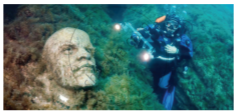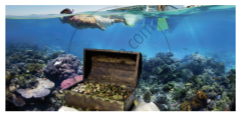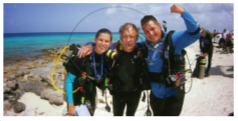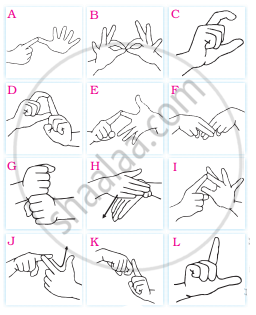Advertisements
Advertisements
प्रश्न
Given below are a few proverb. Prepare a short speech of two minutes on one of the proverb.
Nothing is impossible.
उत्तर
The word ‘impossible’ means it is possible. You can do anything. “The word impossible is found only in the dictionary of fools,” says Napoleon Bonaparte. In this word, everything is possible on the basis of willpower, determination, and sacrifice. To accomplish the most difficult tasks, you need to put in a lot of hard work, extra perseverance, and concentration on a simple objective. You should have determination, dedication, and devotion to attain success. Never bother about the results keep on going even if the pace is slow. Just ensure it remains steady.
APPEARS IN
संबंधित प्रश्न
Imagine that you are a lawyer defending the case of the eyes in court. Present your counter statement in support of your client.
What type of tree fits in your hand?
A ____________ tree.
Develop a story with the given pictures and narrate it to your class. Your story must have a plot and vivid details.





Read the story. Divide yourselves into groups of four. Discuss what little Sarah wants to talk about. Take roles and enact the story.
Read the different verb form where they remain the same in the direct and indirect speech in the following case. Fill in the blank with missing indirect speech.
In if-clauses and time-clauses.

Which session do you like – art/craft?
Can you do an art work or a craft work on your own?
Identify the poetic lines where the following figures of speech are employed and complete the tabular column.
| Figure of speech | Meaning | Lines |
| Synecdoche | A figure of speech in which a part is made to represent the whole or vice versa. e.g. “The Western wave was all a-flame. ” The “Western wave” is a synecdoche as it refers to the sea by the name of one of its parts i.e. wave. |
|
| Paradox |
A figure of speech in which a statement appears to contradict itself. e.g. To bring peace we must war. Be cruel to be kind. |
|
| Onomatopoeia |
A figure of speech wherein the word imitates the sound associated with the object it refers to. e.g. Pitter-patter, pitter-patter Raindrops on my pane. |
|
| Rhetorical Questions |
A figure of speech in the form of a question that is asked to make a point rather than to elicit an answer. e.g. And what is so rare as a day in June? |
Take something from your school bag. Describe it in three sentences. Ask the class to find out the thing you have described.
Change the following into Indirect Speech.
“Go down to the bazaar. Bring me some oil and a lump of ice.” ordered his master.
Change the following into Direct Speech.
I wrote that I would visit him next day.
Look at these images of different kinds of sports. Identify and name as many as you can with your partner.

Describe any one of them to your partner.
- Name of the sport.
- What equipment is used to play the sport?
- What kind of area/ground/field it is played in?
- How is it played?
Travelling can help a person to understand and appreciate different places. Discuss in groups and talk about the places you have visited recently. Present your experiences to the class.
Using the following clues write about yourself in the space below — name, place you live in, physical features, habits, likes and dislikes, etc.
Now complete the following. Use the words given in the box.
| red | slow | black | gentle | warm |
| strong | sweet | light | white |
- As ______ as a feather
- As ______ as a tortoise
- As ______ as honey
- As ______ as snow
- As ______ as an ox
- As ______ as night
- As ______ as a rose
- As ______ as toast
- As ______ as a breeze.
Use the above expressions to complete the following sentences.
- The old man’s hair is as white ________
- His feet were ________
- The newspaper boy was as slow ______ in delivering the papers.
- I felt as light ______ after exercising.
Create your own comparisons for the following. Work in pairs.
as tall as _______________________
as fast as _______________________
as high as _______________________
as angry as _______________________
as tiny as _______________________
as brave as ______________________
Look at the picture below. In the yellow box there are eight things You can see six of them in the picture. You cannot see the other two. Write down the four things that you can see.

- ______.
- ______.
- ______.
- ______.
Some letter are missing in each word.
b ______ p
Imagine you are Alice and your partner is a rabbit. What would you do?
Look at the signs for the letters of the alphabet.


Do you think that –
Hiawatha called the birds ‘chickens’ and the beasts ‘brothers’? What do you think this shows?
Do you think that –
Do birds have secrets?
Make a story of the poem and share it with your friends. You can change Hiawatha’s name and give the name of your classmate. Start the story which other children can continue. Happy Hiawatha, hungry hippopotamus, high horse, heavy hand.
You could begin like this –
Once upon a time there was a boy called
What kinds of stories do you like?
Tell the class about your ambition in life and the way you are working towards achieving your goal.
Compose your own limericks on an elephant, a peacock and a butterfly. Read it out to your class.
Build a conversation for the following situation with a minimum of five exchange.
Two friends about the NSS camp which they are going to attend.
Given below are a few proverb. Prepare a short speech of two minutes on one of the proverb.
Together we can achieve more.
Ray Bradbury’s “All Summer in a Day” is a piece of science fiction. Discuss plots of similar stories with your partner and share your ideas with the class.
